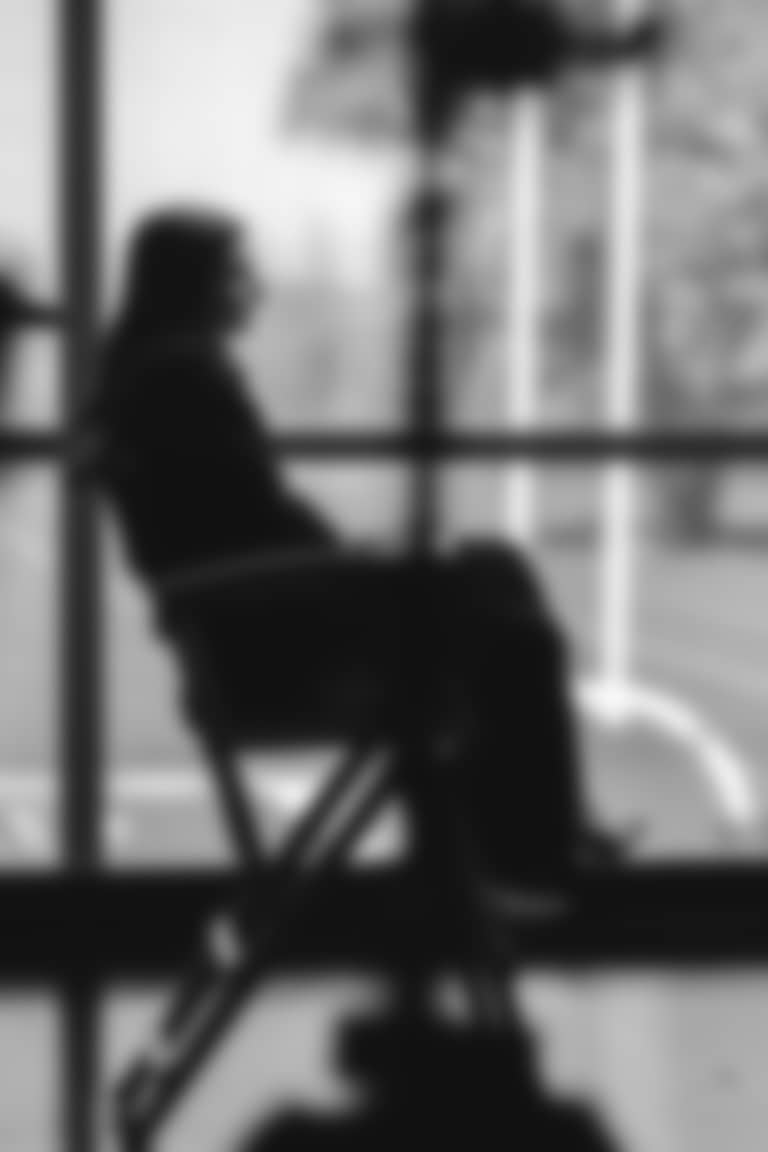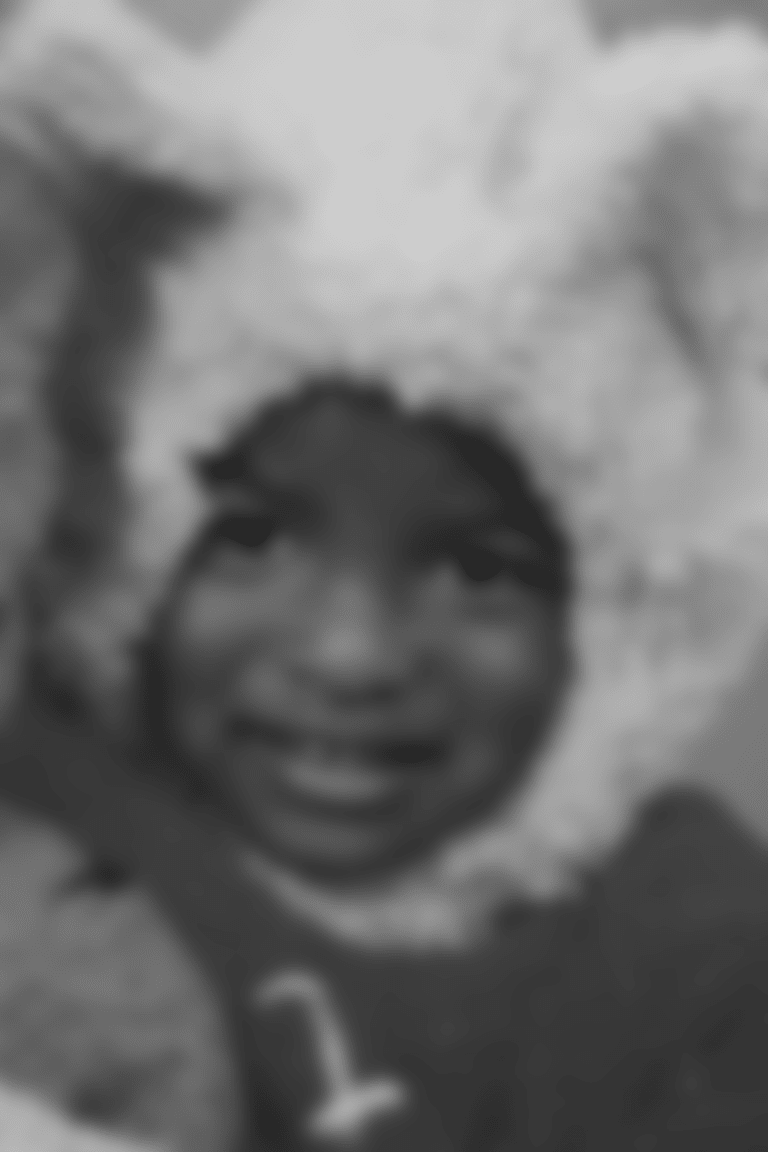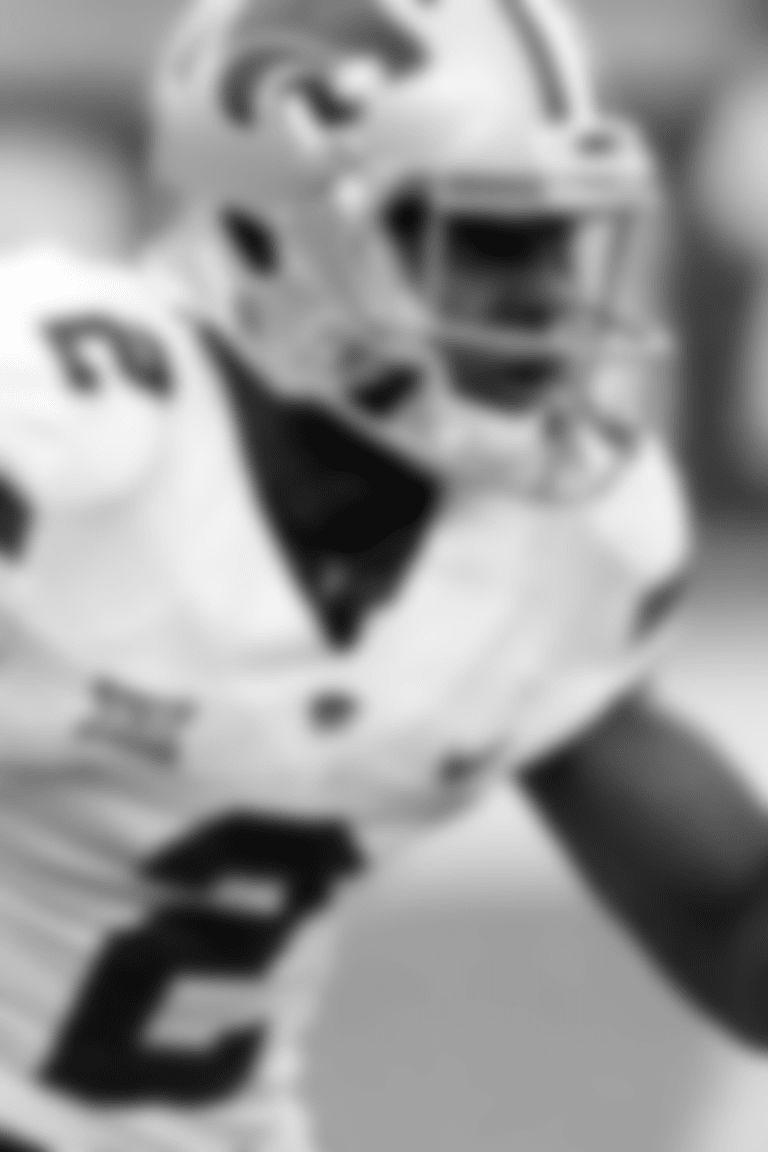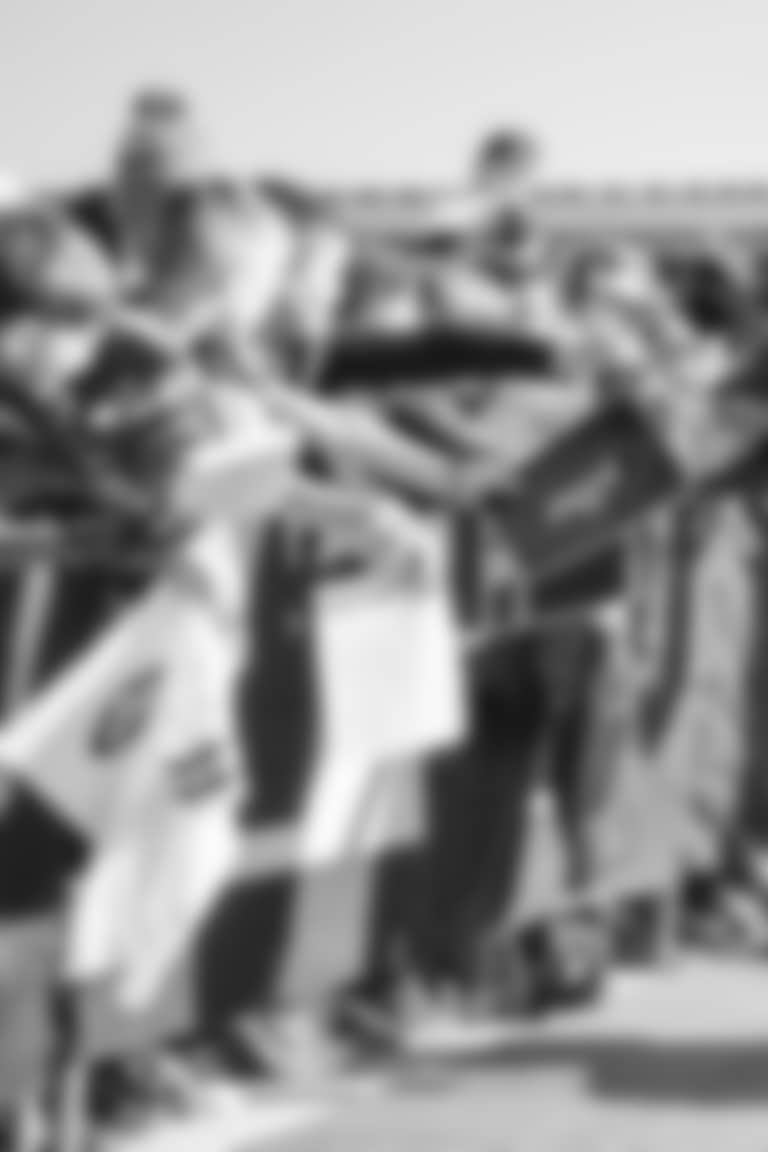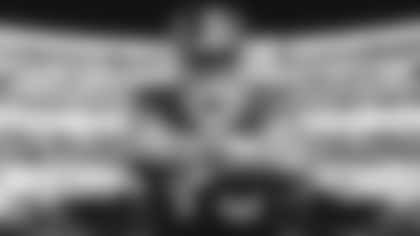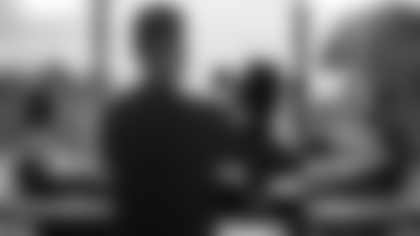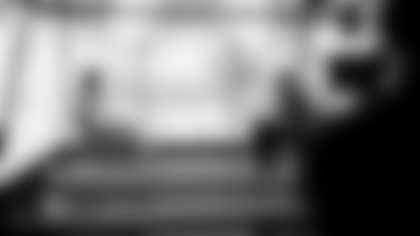What’s Your Why: D.J. Reed
An In-Depth Interview with Jets Cornerback
What's Your Why is an in-depth interview series to get to know the players at the New York Jets. CB D.J. Reed sat down with team reporter Caroline Hendershot and discussed the importance of family throughout his childhood, his journey on three different collegiate football programs and making it to the professional level.
Q&A with D.J. Reed:
Caroline Hendershot: "DJ, take me back to Bakersfield, California where you were raised. What was it like growing up?"
D.J. Reed: "I would say it was a fun household. I grew up with a lot of people living with us. I had a lot of brothers and sisters. My house was pretty much the house that everybody came to if you needed a place to stay. So, there was a lot of people running in and out of our house. It was a good childhood, and then my dad got sick. That's when things started to take a little turn. We weren't able to help people like we were originally, and my mom had to work more jobs to provide for the household."
CH: "Did you feel any pressure to kind of step up and help or take [your dad's] place in a sense and kind of help provide in that way?"
DR: "I would say for my little brother, my mom did a great job of making sure we were straight. We had food on the table and just making sure that we were good having clothes. So, I didn't have to worry about that. It was more so just with my little brother, I guess being a father figure. Especially when my dad moved back to Iowa, just being a good role model for him and showing him the ropes. For me, it just made me want to help my mom out as far as taking sports more seriously. I knew that that would be my way out."
CH: "So your parents separated and then after that your mom got diagnosed with stage three breast cancer, right? Knowing that there were so many things happening in your life, did you ever kind of get down on yourself and look to blame someone or something?"
DR: "Yeah, that's a great question. She tried to hide it from me and my little brother at first. We were just devastated, especially because we literally just moved into a new apartment. My dad just moved to Iowa, he's sick, and now I'm being told that my mom has cancer. It was a lot to take in. My brother and I were sad about that. It just made me grow up a little faster, having to help her and just taking care of her the best way I could at that age. It definitely just motivated me to be able to help her when I was able to help her."
CH: "When did you really find football and kind of get into a groove that you thought this sport is for me?"
DR: "That's a great question. I would say, my senior year, I really knew that I was going to choose football over basketball. I liked basketball way more than football at the time, but I had a real conversation with my older brother. He was just like, 'You're good at basketball, bro, but your ticket is football. If you take this seriously, you could go really far.' I remember, after my senior year, me and my older brother went to work. We were waking up 6am every day and running hills, running stadiums, going to Patriots Park and just doing crazy workouts. I ended up getting a walk-on tryout to Fresno State. So, I went there, made the team, and I walked for the year."
CH: "You redshirted that first year Fresno State. What happened after that year and the conversations with the coaching staff?"
DR: "Because I walked on, my mom had to pay for me to go there and that was a struggle. My mom would never tell me that, but my little brother back home would tell me. He was just being very upfront. So, I felt guilty actually being there not on scholarship. I voiced that to the head coach and to my position coach, and they were just like, you know, we do evaluations every year. We'll let you know next year how we feel about you. Next spring came and they gave me the evaluation and they pretty much said 'We don't see you as a starter this year and far as scholarships, you're going to have to probably wait till next year.' For me, that just told me I have to go because my mom can't afford it financially. On top of that, I see myself as a starting corner. That's when JUCO came about."
CH: "What happened when those calls started coming in from other schools after that first year at Cerritos?"
DR: "My first offer was from Indiana State, and I was happy because it's a D1 AA, but it's a D1 and they offered me a full ride. So, I remember going on a visit and it was cool, and everything was nice. But like something was just telling me, 'Bro, you're supposed to be at a bigger school. No disrespect to Indiana State, but you're supposed to be at a bigger school.' I was very emotional though, because it was my first offer. So, I came back home and that's what K-State called. Coach, his name was Coach Seiler, he called me and was pretty much like 'We want to offer you a full-ride scholarship.' And that was a crazy feeling."
CH: "In your two years at K-State, you exploded in 12 games. You had three touchdowns, a 32.2-yard career kickoff return average which is second in school history, seven interceptions and three forced fumbles. Not to mention first team All-Big 12 and second team All-American. How were you able to do all of that at such a high level?"
DR: "I knew once I got back to a D1 school, I knew that I was going to ball. I needed to go through all those experiences. I needed to go to Fresno State, so I already knew how D1's operated. I needed to go through JUCO just to get the gratitude, perspective and the appreciation of going back to a D1 you have to really capitalize on that. After the first season, I was like 'You're going to go to the NFL.' So, it was just like everything is coming to fruition."
CH: After being in the league for seven years now, what would you say is the biggest takeaway that you've learned?"
DR: "I'll say, being in NFL playing cornerback you have to really just focus on yourself. The times that I play my best ball is when I'm just focused on myself. Focused on what I have to do to help the team play by play. When I'm just solely just focusing on my job, my tasks, shutting down this receiver who's in front of me and then just being a professional in the whole grand scheme of things."


